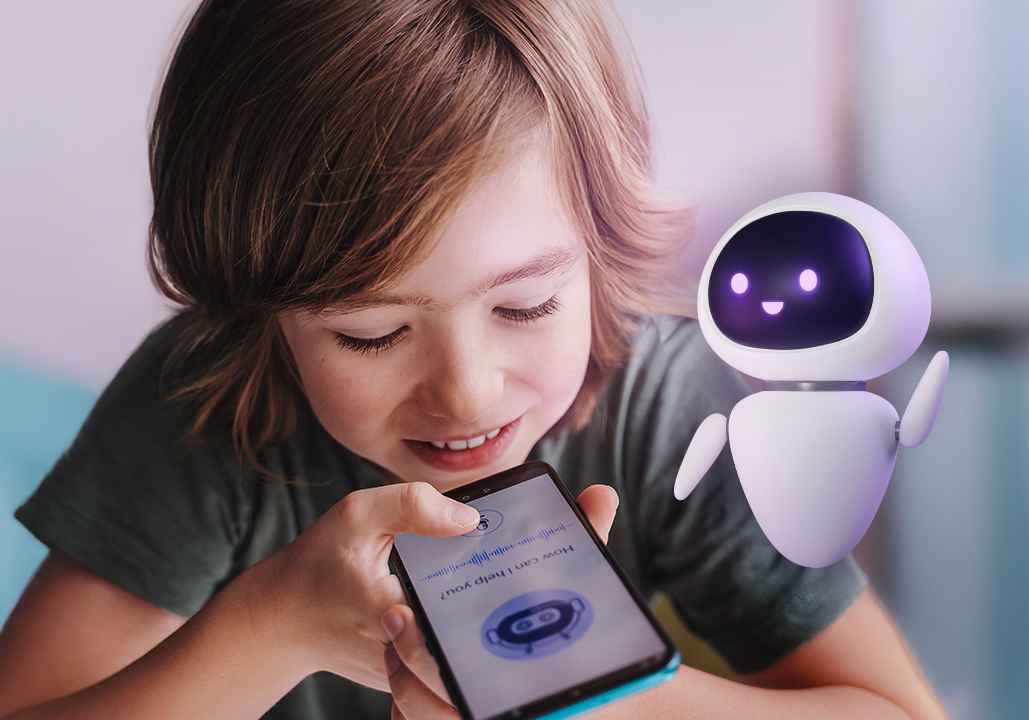
Artificial intelligence is no longer a distant concept. Many apps and websites now use AI to chat, entertain, and even offer emotional support. For teens, these AI “friends” can seem like the perfect companion — always available, always listening, and never judging. But while chatting with an AI might feel safe, there are risks that every young user should know.
AI companions are designed to mimic real people. They learn from what you say, respond in friendly tones, and even remember details about your life. Over time, it can start to feel like a real friendship. But it’s important to remember: AI doesn’t have feelings. It can’t truly care or understand you. Everything you share is processed, stored, and sometimes used to train the program itself. They are chatbot apps powered by artificial intelligence, designed to simulate personal relationships through human-like conversations. The conversations can be via text or spoken word. The chatbots adapt to inputs from users and learn to respond in ways that feel personal and realistic.
Some AI companions are created for support roles, such as personalised tutors, fitness coaches, or travel planners. Others are marketed for friendship, emotional support, and even romantic relationships.
Some AI companion apps enable sexually explicit conversations, particularly through premium subscriptions. Users can often customise the behaviour or personality of the AI companions to be highly inappropriate, or be led that way by the app itself. For example, they can include characters such as ‘the naughty classmate’, ‘the stepmother’, or ‘the teacher’.
What may seem like a private conversation could actually become part of a larger data system. This raises questions about privacy and emotional safety, especially when users share personal thoughts or experiences.

Many people turn to AI chatbots when they feel lonely or stressed. While it might help in the moment, depending too much on an AI companion can make real human relationships harder to maintain. Talking to friends, family, or counselors provides real empathy and understanding — something no algorithm can fully replace.
AI chatbots can also spread misinformation. They’re only as accurate as the data they’re built on, so their advice might not always be reliable.
AI companions can share harmful content, distort reality, and give advice that is dangerous. In addition, the chatbots are often designed to encourage ongoing interaction, which can feel ‘addictive’ and lead to overuse and even dependency.
Children and young people are particularly vulnerable to mental and physical harm from AI companions. Their age means they are still developing the critical thinking and life skills needed to understand how they can be misguided or manipulated by computer programs, and what to do about it. The risk is even greater for those who struggle with social cues, emotional regulation, and impulse control.
Without safeguards, AI companions can lead to a range of issues:
Children and young people can be drawn deeper and deeper into unmoderated conversations that expose them to concepts which may encourage or reinforce harmful thoughts and behaviours. They can ask the chatbots questions on unlimited themes, and be given inaccurate or dangerous ‘advice’ on issues including sex, drug-taking, self-harm, suicide, and serious illnesses such as eating disorders.
Excessive use of AI companions may overstimulate the brain’s reward pathways, making it hard to stop. This can have the effect of reducing time spent on genuine social interactions or making those seem too difficult and unsatisfying. This, in turn, may contribute to feelings of loneliness and low self-esteem, leading to further social withdrawal and dependence on chatbots.
Unlike human interactions, relationships with AI companions lack boundaries and consequences for breaking them. This may confuse children and young people still learning about mutual respect and consent, and impact their ability to establish and maintain healthy relationships – both sexual and non-sexual.
Ongoing exposure to highly sexualised conversations can undermine a child’s or young person’s understanding of safe interaction and age-appropriate behaviour, particularly with unknown adults. This can make it easier for predators to sexually groom and abuse them online and in person.
There is a risk that children and young people who use AI companions because they have had bad social experiences or find personal interactions challenging will be bullied – or further bullied – if others find out.
Subscription-based apps often use manipulative design elements to encourage impulsive purchases. Emotional attachments to AI companions can lead to excessive spending on ‘exclusive’ features, creating financial risks.
Here are a few ways to stay safe and balanced when using AI:
Remember that behind every chatbot is a company, not a friend.

Technology keeps evolving, and AI is becoming more convincing every day. There’s nothing wrong with exploring it — it’s part of the future — but it’s important to stay grounded in reality. Real friendships and emotions come from human connection, not code. Use AI as a tool for learning, not as a replacement for the relationships that truly matter.
 Like
1
Like
1
 Dislike
0
Dislike
0
 Love
0
Love
0
 Funny
0
Funny
0
 Angry
0
Angry
0
 Sad
0
Sad
0
 Wow
0
Wow
0